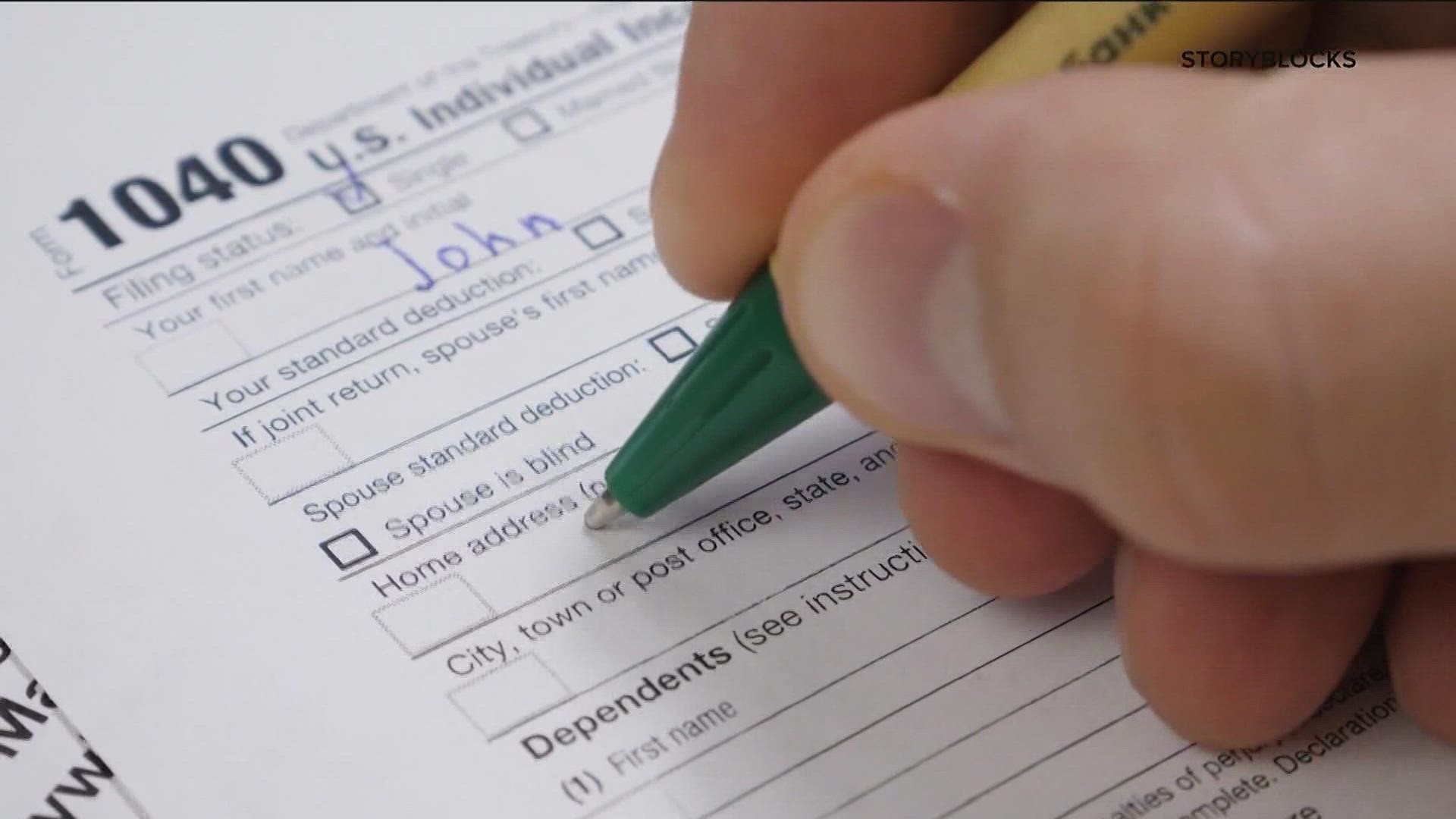ATLANTA — January 24 is the first day the Internal Revenue Service will accept your 2021 tax returns. It'll be much different from many people this year.
A pandemic-related backlog at the IRS is expected to create headaches for taxpayers, according to 11Alive financial expert Andrew Poulos.
“The last statistic that we saw come out of the National Taxpayer Advocate Office was that there were roughly about 5 million unprocessed returns and then about somewhere between 5 to 6 million on opened taxpayer correspondence," Poulos said.
Poulos' first tip is to take your time and file a full, complete report.
"Don't rush to file a tax return that's not complete and accurate," Poulos said. "If you don't have all your information tomorrow, or this week, wait to file your return a week or two from now when you have all your records and you're prepared to file a complete return and accurate return."
Some other tips include filing your tax return online and if you get a refund, receiving it by direct deposit. This should speed up the process.
Poulos said three big things are different this year.
“Both the advanced child tax credit payments, and the economic impact payment, which is referred to as obviously, the stimulus payment, which was round three, last spring, that's March, April, those are both have to be reported and reconciled on the tax return the stimulus payments again, as round one and round two, those are not taxable," Poulos said.
Unemployment benefits weren't taxable in 2020, but they are for the 2021 tax season.
“Make sure that if you did receive any more unemployment in 2021, you put it on your tax return because the IRS will be notified of that information," Poulos said. "If you don't report it correctly, there's going to be adjustments in the future.”
The deadline this year for getting your tax returns to the IRS is Monday, April 18.

